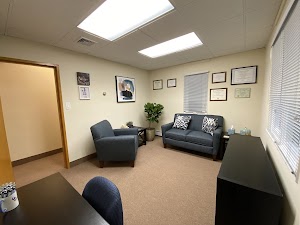By Meryl Lammers, LSW, MT-BC

Parenting is a complicated job, full of joy, unimaginable love, and a level of stress many are not expecting. When you are parenting children with ADHD (Attention Deficit/Hyperactivity Disorder), or other forms of neurodivergence, there are forms of burnout that parents of neurotypical children may not experience to the same degree. It’s a form of being tired you’ve never known before.
WHY?
Children with ADHD need more co-regulation, more reminders, more structure, and more patience. They need to be parented perhaps differently than you/we were. There must be a focus on building relationships, providing structure and support, managing impulsivity, and meeting behavioral and educational challenges. This includes creating a positive and supportive environment, using effective communication and discipline strategies, and understanding the unique challenges ADHD presents. Parenting this way may feel foreign, which requires more work and learning for you.
Offering Trauma Therapy for Parental Stress at the Phoenix Center in Media, PA or Online!
484-440-9416 | Support@PhoenixTraumaCenter.com
It’s the constant mental load of parenting a child whose brain works differently.
You’ve put your own needs to the side to care for your child. You’re always juggling meltdowns and tantrums over getting dressed, eating breakfast, or transitioning from one task to the next. You’re managing both you and your child’s emotional regulation. You’re going to therapy and doctors’ appointments, activities, advocating with insurance companies, schools, and health care providers. You’re navigating a healthcare system that feels impossible and you’re constantly wondering why it feels so hard to get the support you and your child need. You’re attending IEP meetings, fielding phone calls, emails, letters home.
You’re working a job in addition to parenting. You’re not sleeping well because your child isn’t sleeping well. Maybe you’re parenting more than one child, all of whom have different needs. You’re always in decision making mode and it’s hard to make mental and physical space for things you love or need.
It’s the constant worry, “Am I doing enough? Am I enough?”
Why does this feel so hard?
Because your cup isn’t full. Maybe you don’t have enough familial or community support. Maybe you don’t ever get time by yourself because you’re the default or only parent. Maybe you weren’t taught how to support their nervous system through your own. Maybe you weren’t taught how to support your own nervous system.
And our society is not currently set up to support parents, especially parents of children with differences. Maybe you’re faced with judgement from others or society on how you’re parenting. Maybe you’re also neurodivergent and the stress and sensory input of parenting overwhelms your system. Maybe you weren’t parented with patience or love and are trying to break generational patterns of unresponsive parenting. Maybe you have past trauma resurfacing and you’re not sure how to cope. You’re running on empty.
The increased stress and burnout of parenting can lead to:
- Increased cortisol levels (stress hormone) leading to negative health outcomes.
- A decrease in distress tolerance or ability to cope with daily living.
- Increase in yelling and fighting with your child or partner.
- Insomnia or poor sleep hygiene.
- Increased anxiety, depression, feelings of dread.
- Increase in irritability.
- Feelings of guilt and shame.
This increase in stress has the potential to trigger past unresolved trauma. Here are some Red Flags to look out for:
- Increased feelings of depression/anxiety.
- Nightmares.
- Flashbacks of traumatic memories.
- Feeling disconnected from your body or from others.
- Intrusive thoughts.
- Persistent negative thoughts or beliefs about yourself.
- Reduced interest in enjoyable activities.
- Feeling unsafe in everyday situations.
- Feeling helpless or hopeless
If you are parenting children with ADHD or neurodivergence, and are experiencing these symptoms, it may be time to reach out for help.
Benefits of working with an experiential trauma therapist include:
- Increased ability to cope with life’s stressors.
- Reduced PTSD symptoms.
- Learning how to regulate your emotions so you can help your child regulate theirs.
- Improved relationships with your child/partner/family.
- Increase self-esteem and self-awareness.
- Increased feelings of empowerment.
- Ability to regain a sense of control over your life.
Offering Trauma Therapy at the Phoenix Center in Media, PA or Online!
484-440-9416 | Support@PhoenixTraumaCenter.com

Remember: You are NOT failing. You are carrying a load that no one else sees. We cannot recover alone and you’re already doing so much for others. You deserve support, too! Please call the Phoenix Center to schedule an appointment with one of our skilled experiential trauma therapists.
Meryl Lammers is an Experiential Trauma Therapist and Music Therapist at The Phoenix Center for Experiential Trauma Therapy. Meryl also provides Trauma Recovery Coaching.


